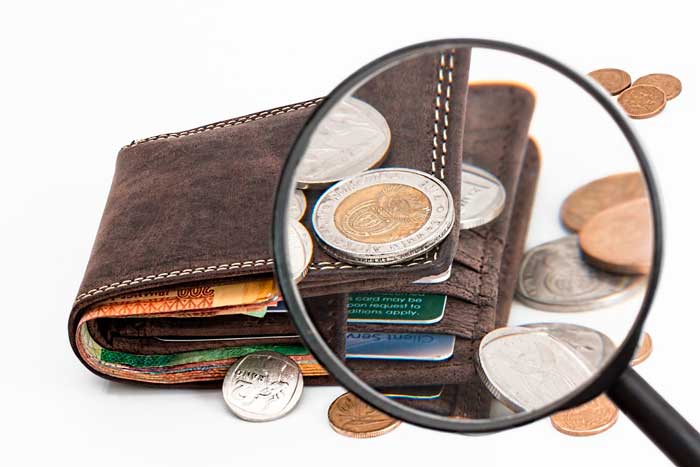There is nothing complicated in saving money; planning does it. The problem is when people don’t get round to it or, having gotten round to it, fail to stick to the plan. Many still believe that budgets can sort of iron themselves out – but they can’t, you know, it’s up to you to strengthen your financial position. So make your mind up and run your eye through tips that can make your budget several degrees fatter.
Begin with a close look-see at your spending
A month of detailed documenting of the items you purchase, where and at what price should give you sufficient insight into your shopping habits. Now you know what really happens to your money.
Figure out a sum per month
Fill out a financial spreadsheet (or jot the information down on a sheet of paper) to review your assets and expenditure. Now you should know the basics of a healthy budget; you need only to observe it diligently.
Keep a regular eye on your purchases
Allot a little time at the end of each week to run a check on your projected budget for overspending; cast about for opportunities to keep hold of any additional inflows of money.
Reconsider your grocery expenditure
It can happen that when you have written out your budget, you can be astonished at how much goes for your grocery shopping month after month. The grocery statistic says that a typical family with two young children leaves at a grocery store an average sum of about $930 – think about it!
The reason for this is when people walk about the store, they snatch small bags of chips and the like besides the items they meant to buy, and at the register, add some more goodies to their trolley… While they seem to be trifles, they can run up to quite a nice sum and blow a big hole in your budget.
Make your purchases wholesale
Go to a wholesale store for your groceries – plan your meals way ahead so you will know what to buy and get the necessary items in bulk.
Acquire the habit of paying in cash

While reviewing your budget, define categories where you can easily overpay, like eating out or entertainment. Since paying with a credit card doesn’t allow for strict expenditure control, carry cash and pay for these categories with cash – it will help you spend within set limits since you have only a certain sum ready.
Avoid debts like plague
If we speak about budget drainers, debt payments will surely take the prize. When your monthly money comes in, it dwindles instantly – so it’s up to you to eliminate the debts. There is a convenient technique known as the snowball method. You begin with arranging your debts, starting with the smallest ones, and pay out these first. Even if there are quite a few of them, a day will come when you are free of all of them – then you have full control of your income and save for your desired buys.
Save for particular things you want most
It’s better not just to save money but save with some definite goals in mind. Visualize big purchases to motivate yourself better. When you know what you want, set about fixing timelines for a perfect arrangement of your saving campaign. Figure out what amount of money you need, how much you can allot every month and how long it will take for you to collect the sum in question.
Stop splurging on vacations

“Staycation” is the word denoting the trend when people prefer to have their rest without overspending on long hauls. Really, you can burn a few thousand in a short time while many delights (like eating delicious food) are available near home. Or travel about your region – are you sure you have seen all there is to see there?
Saving possibilities at home
Consider all your home activities. Where there are leaks, have them stopped; mind you spend less time when showering; when washing, use cold water; change bulbs for dimmer ones.
If you turn down your water heater thermostat by 10°F, it can save energy costs for you up to 5%. But your water heater may be not economical – you could do better by investing in an on-demand water heater or a tankless one. These options can ensure about 30% savings, making it worthwhile to forgo a standard water heater with a storage tank.
A ring of trees can save you cooling
In hot summer, you can spend a lot on air conditioning. But if you plant thick shady trees near your house, they will make it cooler and you won’t have to keep the conditioner on all the time.
Get busy with packed lunches
The best saving technique is when you save daily. It can be easily done with lunch – when you buy it near your office, it sets you back about $8, while a homemade lunch will come to $2. With careful handling, only this issue can work up a substantial emergency fund to be used for training or retirement.
Can you go without regular coffee?
We can almost see you wince at that. Coffee is definitely worth its daily $5, but the point is, again, it can be prepared at home. You keep coffee beans at home and you brew them, so why not brew more and take it along in a thermos flask? Calculate your savings and see how much this simple expedient can bring you.
You may have a lot of memberships and subscriptions that can be canceled
Check if you have a number of subscriptions (Amazon Prime, Netflix, Spotify, gym memberships, whatnot) that you may no longer use or need. Did you have trouble canceling them? Now it’s time you did, and don’t forget to switch off auto-renew following your purchase.
There may be some subscriptions worth keeping – right, but you can share the membership with someone else. Raise this point with your friends. Netflix, Hulu, and other streaming services offer the option of watching a movie from more than one screen if your account is upgraded. Thus you and your friends can save.
Turn away from brands

If you are addicted to brands, know that you must be habitually overpaying. Once you have made up your mind to save, you should shake off this habit. Brands are very good at marketing and packaging. They have logos that are pleasing to look at – but is there much more to them? You can spend a lot less if you go for common foods, cleaning stuff and detergents, or buy generic medication. They will be molder to your budget and function as well as any brand product.
Avail yourself of the library’s service
They offer you recent bestsellers on the Internet every day, but why buy? You may not like the book after all. See if your local library has a copy. What’s more, in most libraries, you can request a digital book or an audio version, sometimes even rent a movie. It can be a simpler (and cheaper!) way to keep abreast of literary and movie news.
Cash back apps and coupons will serve well for your saving projects
How nice to make a bargain and get 20% off the price by making use of a coupon. It is a bit outdated, but it still works; to be up to time, cast about for cash back apps to make your saving run faster.
Look around for stuff you don’t use
Everyone has a number of items that are not used but just clutter the place. You can make your finances more stable if you resolve to get rid of such items. You may come across some stuff you have long forgotten about, lying brand-new and gathering dust, just waiting to be sold.
Is your conveyance fuel-efficient?
Savings on fuel can run up to quite a substantial sum, even to getting back the sum paid for your vehicle. If your car devours gas, you can consider selling it or trading it for a more fuel-efficient automobile. To ensure getting a fatter budget, you can try to make do with one car or even rely on buses if your district has great traffic communication.











